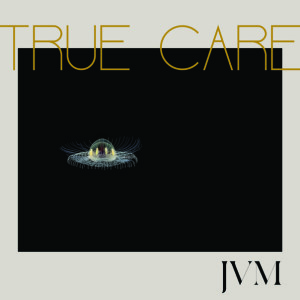Outside Lands 2017: James Vincent McMorrow brimming with confidence on True Care

Tired of the monotony of the music industry and the record-tour-repeat cycle, Irish singer-songwriter James Vincent McMorrow followed up his critically acclaimed 2016 album, We Move, just nine months later with True Care this May.
James Vincent McMorrow at Outside Lands Music Festival
3:50 p.m., Sutro stage
Sunday, Aug. 13
Golden Gate Park
Tickets: $150-$400.
“There’s something the way the records have been made,” the Irish singer-songwriter said recently in call from his home. “By the time music comes out, the musician that creates it has spent a year and a half with it, problem-solving and really digging into the mundanities of the music.
“I just wanted to do something where none of that stuff took place. I made a record really fast, but also with a sense of purpose. It wasn’t rushed. As soon as it was finished, I just wanted people to hear it because, why not?”
McMorrow, who performs at Outside Lands on Aug. 13, understood that he was leaving money on the table by not touring We Move more, but he found other ways to measure success of that album. In larger U.S. cities like Los Angeles, that record helped him graduate from 1,200-capacity clubs to 2,400-capacity halls. While his record label initially pushed back on such an early follow-up record, McMorrow was adamant.
“It’s not an unreasonable thing to make a record every year,” he said. “People used to do it a lot, and for different reasons. … As the touring cycle built up, and the money was there, that became the driving force behind music. It’s kind of like the tail wagging the dog a little bit.”
So he accepted the risk that breaking the traditional cycle meant that some people wouldn’t immediately hear the new record, or that some people might drop or forget the previous one. He released True Care just four weeks after putting the finishing touches on it.
“I wanted … this record [to be] as fresh to me as it was to people hearing it for the first time, the fast-talking musician said. “For these 18-month touring cycles, to do something fun in music, it’s a rarity to do something like that.”
McMorrow has stayed so busy making music that it’s easy to forget the 34-year-old released his debut, Early in the Morning, just seven years ago. That album and its 2014 follow-up, Post Tropical, put him on the map, but were also labeled as “folk.” So when he U-turned into R&B and synth pop territory on 2016’s We Move, it was viewed as a new direction.
That simply wasn’t the case, McMorrow said. For the first album, he was limited to what he could do by how little money he had at the time. On the second, he was testing and growing into a fuller sound. By the third, he had friends with means to help him grow his sound to how he saw fit: “I had them in my head, but I just couldn’t make them, so they came in and helped me.” And here’s the kicker: True Care wasn’t even initially meant for public consumption. McMorrow was making it for himself while on the road with We Move. Because of that, he felt no pressure to make it sleek like its predecessor.
“Every album is a different problem that needs to be solved,” he said. “Everything created by me has a different path.”
McMorrow has always written deeply personal lyrics, but True Care is distinct because it was written not for an audience of listeners to lend it life, but for himself. Even had he decided not to release, it would still exist
“I was creating it because I wanted to hear where it was going,” he said. “I wasn’t aware that was something I ever wanted to say on a record, but there we go.”
For that reason, “personal” is less accurate of a description than “private.”
Take “National,” a warm piano ballad about Boxer, an album by the band The National that McMorrow listened to obsessively as he fell in love with the woman who is now his wife.
“That album will be sort of a mirror to my heart more than any album because it marked the start of something really lovely in my life,” he said.
The songwriter opens his heart about insecurities and potential not to us but to her. On “Constellations,” he compares loves to the passing of energy between heavenly bodies as synths and an organ pulsate around his voice.
The record is broken up intro three groups of four tracks, broken up by spacy interludes. The groupings represent the past, the present and the future. But opening track “December 2914” is an outlier, McMorrow said.
“There is a huge element of this record that is rooted in a sort of just very distant future because I think I was making this record to try and find some perspective on my life and on what it means to be alive at a time like this where everything feels very transient and pretty fucked up,” he said. “The song could be in the past or it could be from the future.”
Sonically, McMorrow continues his progression from folk to electronic soul. Standouts include the glitch “Bears,” smooth slow-burner “Pink Salt Lake” and the slow dance of the title track, set to a foxtrot rhythm. Some of songs invoke multiple emotions at the same time: sultry, ominous, lovesick and nostalgic.
McMorrow is not a fan of genre labeling. He never complained when he was labeled as a folk musician, even though to him it felt reductive.
 “People called [Early in the Morning] folk music, and I let them call it whatever they wanted to,” he said. “It didn’t make any difference to the second record in terms of what it was, and then the third and the fourth happened, and that’s just the progress. … Not to say that I’m narcissistic, but I do what I want to do. That’s the long and short of it.”
“People called [Early in the Morning] folk music, and I let them call it whatever they wanted to,” he said. “It didn’t make any difference to the second record in terms of what it was, and then the third and the fourth happened, and that’s just the progress. … Not to say that I’m narcissistic, but I do what I want to do. That’s the long and short of it.”
At this point in his career, McMorrow is also a very confident musician: one who’s largely responsible for his own success. On We Move, he worked with other influencers and contributors for the first time. That experience made him comfortable accepting the feedback of others, and some of that carried over to True Care.
In the end, he decided to leave the record rough around the edges after coming to a certain point in the creation process. Before, he would spend a year writing, recording demos and analyzing all of the moving pieces. Then he would either decide to go into the studio to record himself (Post Tropical) or ask for help (We Move).
“With this one, I had it at that point and I just went, ‘OK, that’s the record. That’s it.’” he said. “There were so many things I could have done to make this record slicker, to have spent more time or money on it. But I think it would have been a disservice. … Sometimes things tail off, or sometimes things weren’t perfectly cut or perfectly edited. That just feels like life to me.”
Going forward, McMorrow says he understands his strengths and limitations, and knows where he wants to grow as an artist. He knows what he wants to do with his music and is no longer trying to metaphorically land on an island in the middle of nowhere with nothing but a backpack and a bottle of water.
“There’s very few things I could do this point that really pull me out of the (comfort zone) in a meaningful way, unless I was going to make a really complicated speed-metal record,” he said. “You can put me in any scenario, and I feel like I could thrive at this point.”
Follow Roman Gokhman at Twitter.com/RomiTheWriter and RomiTheWriter.Tumblr.com.
